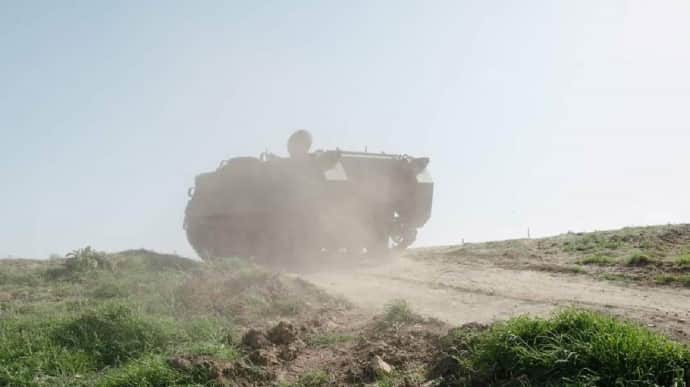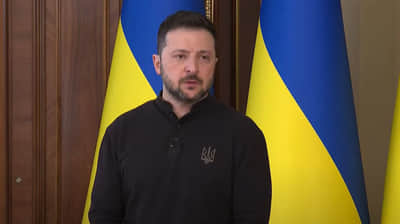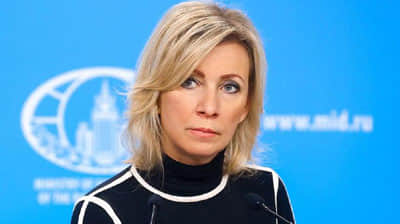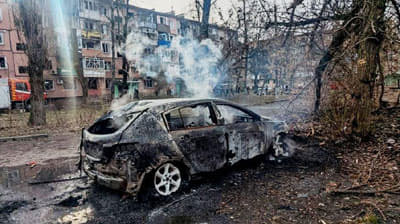While Ukraine waits for US aid, Russians may gain tactical advantages – ISW

Experts from the Institute for the Study of War (ISW) noted that the Russians may gain significant tactical advantages while Ukraine’s Defence Forces are waiting for military aid from the United States.
Source: Institute for the Study of War (ISW)
Details: Russian troops are likely to gain significant tactical advantages in the coming weeks while Ukraine awaits security assistance from the United States, but the Russians are unlikely to be able to break down Ukrainian defences.
Politico reported that Ukrainian President Volodymyr Zelenskyy told US House Speaker Mike Johnson in December 2023 that Ukrainian troops would be able to ‘hold out’ until March or April 2024 without additional US security assistance, a period that Ukrainian troops are currently going through without the arrival of US military aid.
Analysts say that the arrival of US aid to the front in the coming weeks will allow Ukrainian forces to address current logistical problems and suspend Russian offensives, while Russian forces are likely to step up efforts to destabilise Ukrainian defences and try to gain a foothold before the aid arrives.
"Well-provisioned Ukrainian forces will likely be able to prevent operationally significant Russian advances during Russia’s expected summer offensive effort, although Russian forces will nevertheless leverage select advantages and adaptations to pose a significant threat to Ukraine this summer." the review concludes.
It is also noted that Russian troops are partly relying on their numerical superiority in equipment and manpower to exert steadily increasing pressure on Ukrainian forces.
At the same time, the Russian military is suffering losses that Ukrainian troops would not be able to sustain.
The Russian military's focus on quantity, regardless of quality, supports Russia's tactical advantages, especially as delays in Western security assistance have degraded Ukraine's qualitative advantage over Russian forces, and the Russians are likely to use quantity to gain tactical advantages against even well-supplied Ukrainian forces this summer, experts say.
However, Russia's reliance on numbers is not the only adaptation that Russian forces have made in Ukraine, as the Russians have demonstrated an uneven propensity for operational, tactical and technological innovation and training.
Russian military commanders appear to be learning from the mistakes of past operational planning in Ukraine and will likely conduct a summer offensive that aims to stretch and overwhelm Ukrainian forces on a broader front in Ukraine's east.
In addition, Russian forces have also significantly altered tactical air operations in Ukraine through the massive use of glide bombs, allowing aircraft to strike more safely from deep behind the lines.
These glide bomb strikes will continue to play a critical role in supporting Russian ground operations this summer, despite the likely improvement in air defence capabilities that Ukrainian forces will be able to use against Russian aircraft with the arrival of additional Western air defence systems.
At the same time, the report says, Russian forces still suffer from large-scale tactical errors, and Ukrainian forces will be able to exploit these errors as long as the Russian military command continues to struggle with internalising and spreading adaptations at the tactical level.
Ukraine is likely to stabilise the front line in the coming months and be able to launch limited counter-offensive operations in late 2024 or early 2025, the analysts add.
To quote ISW's Key Takeaways on 27 April:
- Russian forces will likely make significant tactical gains in the coming weeks as Ukraine waits for US security assistance to arrive at the front but remains unlikely to overwhelm Ukrainian defences.
- Well-provisioned Ukrainian forces will likely be able to prevent operationally significant Russian advances during Russia’s expected summer offensive effort, although Russian forces will nevertheless leverage select advantages and adaptations to pose a significant threat to Ukraine this summer.
- The tempo of Russian offensive operations is currently higher in the Avdiivka direction than near Chasiv Yar, as Russian forces focus on exploiting a tactical situation that is unfavourable to Ukrainian troops northwest of Avdiivka. Russian forces are likely to intensify offensive operations near Chasiv Yar in the coming weeks, however, as Chasiv Yar provides Russian forces with the opportunity for more operationally significant advances.
- Russian forces conducted large-scale cruise and ballistic missile strikes against Ukraine on the night of 26-27 April and have likely resumed sea-based Kalibr cruise missile strikes after a long pause.
- Ukrainian forces successfully conducted drone strikes against a Russian airfield and oil refineries in Krasnodar Krai on the night of 26-27 April.
- The Russian federal government continues efforts to codify increased control over migrant communities living in Russia.
- The Kremlin is likely setting conditions to intensify its hybrid operations against Moldova.
- Russian forces recently made confirmed advances north of Avdiivka and west of Donetsk City.
- Russian federal subjects continue to sponsor Russian military formations.
Support UP or become our patron!





